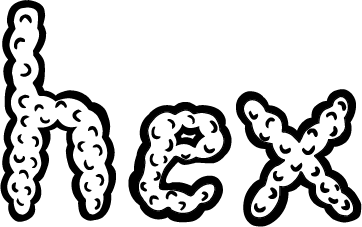Geese
Geese invade our homes. They hiss, beat their wings, and shit on everything until we’re driven out into the night. We huddle at the edge of the lake, shivering. The lake is no longer filled with geese; now it is ringed by miserable people. I tell you that love will see us through this consequence of beauty while on the other side of the lake war is declared, or several wars are declared, or this is peace at last. A few bodies bob quietly across the water.
The International Tchaikovsky Competition
Sibelius always enters and never wins.
Hundreds of dogs are tied up outside. They are all waiting patiently for Tchaikovsky.
Sibelius puts on a Tchaikovsky record and is immediately buried under an avalanche. It was worth it! are his last words. They hover over the white landscape.
It’s just before dawn. Tchaikovsky’s giant head emerges from the mist over the river.
Tchaikovsky, seated at his desk, concentrating. He shoos away some airplanes. Sibelius, at the window, envious.
Because the local hospital is named after Tchaikovsky, all the people who are born there under his name are also born into a vague but heavy burden which they carry, vaguely and heavily, throughout their lives.
Sibelius dresses in Tchaikovsky’s clothes and lies down in a frozen field. What must it be like to be Tchaikovsky?
Tchaikovsky cradles 1000 days in his arms until they turn black. Now they are 1000 nights.
Sibelius climbs out of a flagon of wine to make room for Tchaikovsky, which is really very nice of him. He didn’t have to do that.
Tchaikovsky rushes into a burning building. He releases hundreds of household pets, unharmed, before refusing all rewards and rushing into the night.
On a date, Sibelius spills his beer. Uh oh, he thinks to himself. The dark beer spreads on the white tablecloth until it looks exactly like Tchaikovsky’s face.
Sibelius sits alone at an all-night diner, sipping coffee and eating fries and thinking of Tchaikovsky. The frozen moon slowly descends until it’s nearly crushing the diner and the few souls inside.
Tchaikovsky understands the world thinks of him as a great composer but he doesn’t understand why society has to, like, put labels on everyone. Sibelius gets it, though.
Tchaikovsky smokes a pensive cigarette in an alley and then another. As ever, he remains unaware of the indelible figure he cuts.
The evening news has just come on TV. Tchaikovsky waits for local sports. It’s Sibelius, climbing out of a ditch.
A calm and focused Sibelius twirls a grappling hook, waiting for just the right moment to hurl it over the passing cloud of Tchaikovsky.
Picking through the rubble of Tchaikovsky, Sibelius reconsiders the infinite and what the world requires of us.
The competition ends when Sibelius walks onstage and, with a gentle flourish, reveals Tchaikovsky’s brain in a jar.
________
Brad Liening is the author of Deep State Come Shining (Publication Studio Hudson). He lives in Minneapolis and at bradliening.blogspot.com.
